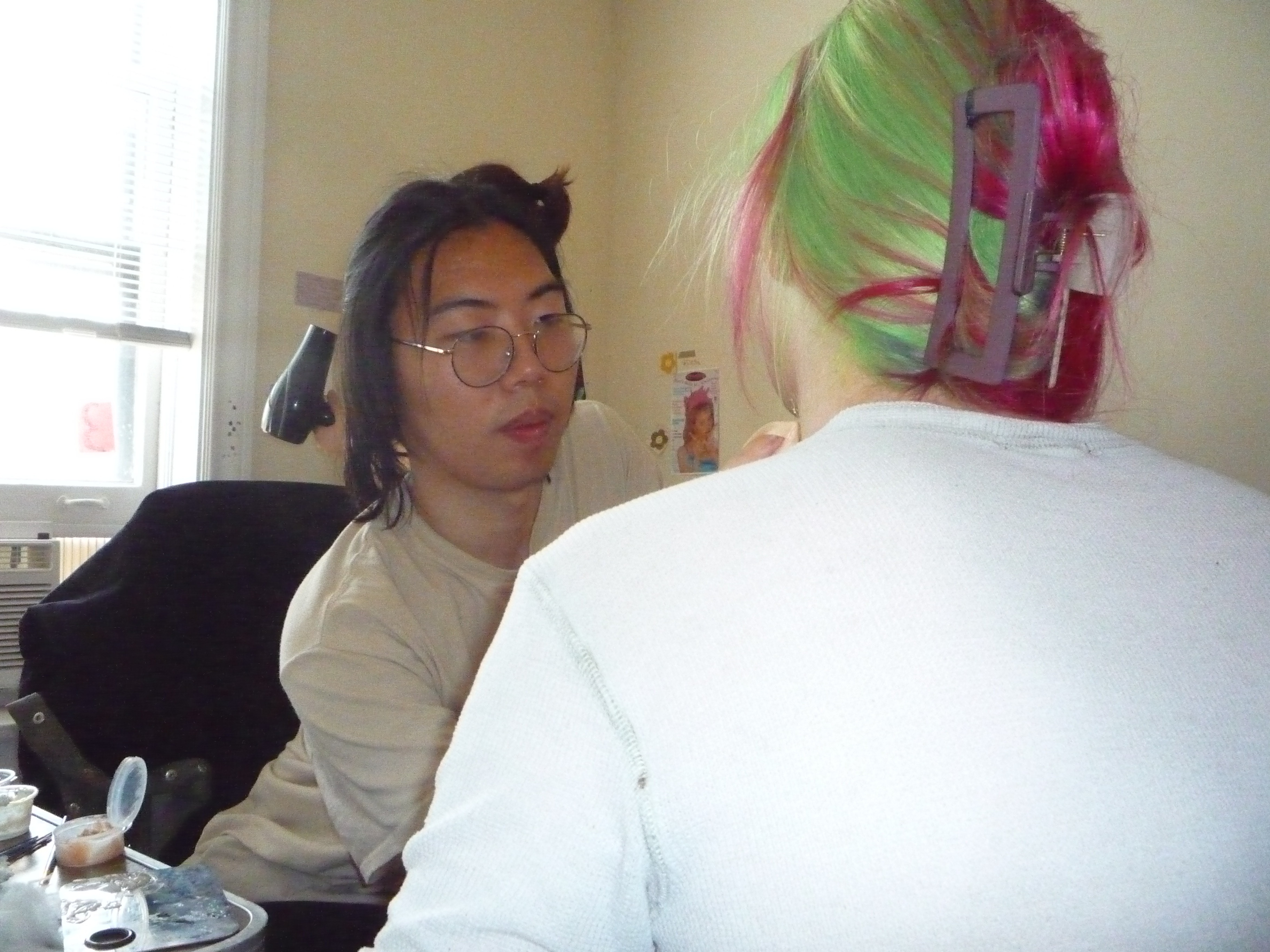Mark Park is a rising fourth-year majoring in Theatre. They plan to research a new method of creating special effects prosthetics, and hope to create a working prototype.
Tell me about your SURG topic.
Park: Last time I talked to Peter Civetta, the head of SURG here, he mentioned that in his years of experience reading SURG grants, he hasn’t encountered one with my topic or in my field before. My primary research is exploring a new technique of developing special effects makeup prosthetics. I'm trying to take this technique that has been around for years and years. It's encapsulated silicone prosthetics, which is a silicone piece that is layered between thin coats of plastic. The reason they do this is because silicone is very slippery, so it doesn't stick to the skin very well and also doesn't hold paint. In order to have that prosthetic stick to the skin, be painted well, and also have clean edges so it blends into the skin, makeup technicians and special effects specialists have developed a way to coat this in plastic so that we can achieve all of these things. Silicone in general is not skin-safe. So in order to use a skin-safe silicone, we have to use platinum silicone, which is incredibly pricey. My research is how can we then take this technique, and is it possible to take this technique and apply it to a different base, like latex? Can I use a cheaper, more sustainable and more widely used material like latex or something like gelatin, hot glue, etc., and layer that between two thin layers of plastic? Will it have the same effect? How will that affect the plastic? Will it affect the chemical composition of the different mediums mixing together? Why hasn't this been done before? I think the last question that I really want to answer is, ‘Will this plastic on top of this latex provide enough of a barrier that people with latex allergies can also wear them?’ Because that is also a huge barrier when it comes to prosthetics, and why a lot of people don't use them – because so many people are allergic to latex. If you're allergic, it's makeup designers who have to change their designs or work harder to develop something else because of allergies or another actor has to get cast due to allergies. I want to see if there's a way to bypass that and if this will help resolve that issue.
What got you into this area of research?
Park: It’s a really weird story. When I first came to Northwestern in 2019, I came in as a full-on performer. And then COVID hit. I had to go back to Korea, and once I entered Korea, the government was like, ‘Hey, I see you’ve entered our country, it’s time for you to sell your soul to the land and serve [in the] military for two years.’ So I did that. The reason I say this is a really strange story is because the military was actually where I first developed this interest in design. Because the military has such harsh restrictions on what you wear, what you look like, you have to shave your head, obviously no makeup or products are allowed. You have to wear exactly what they tell you to wear and when to wear it. They tell you when to shave your head. You had no choice regarding how you looked. Everyone wears the same pajamas, the same work outfit, the same soldier outfit. They even tell you exactly when you can shower. That made me realize how much self-identity and expression is built within how you present yourself and clothing and fashion, added on top of the fact that you’re able to treat your face and the little fibers growing out of the top of your scalp like a canvas and you can choose to style that the way you want and paint it the way you want to create your own aesthetic. It really hit me during the military. When I came back to Northwestern in 2022, I started designing. I started off costume designing, and it was really fun. In the winter of my sophomore year, I gave a shot at hair and makeup designing. That’s when I absolutely fell in love with it, and I haven’t stopped since.
